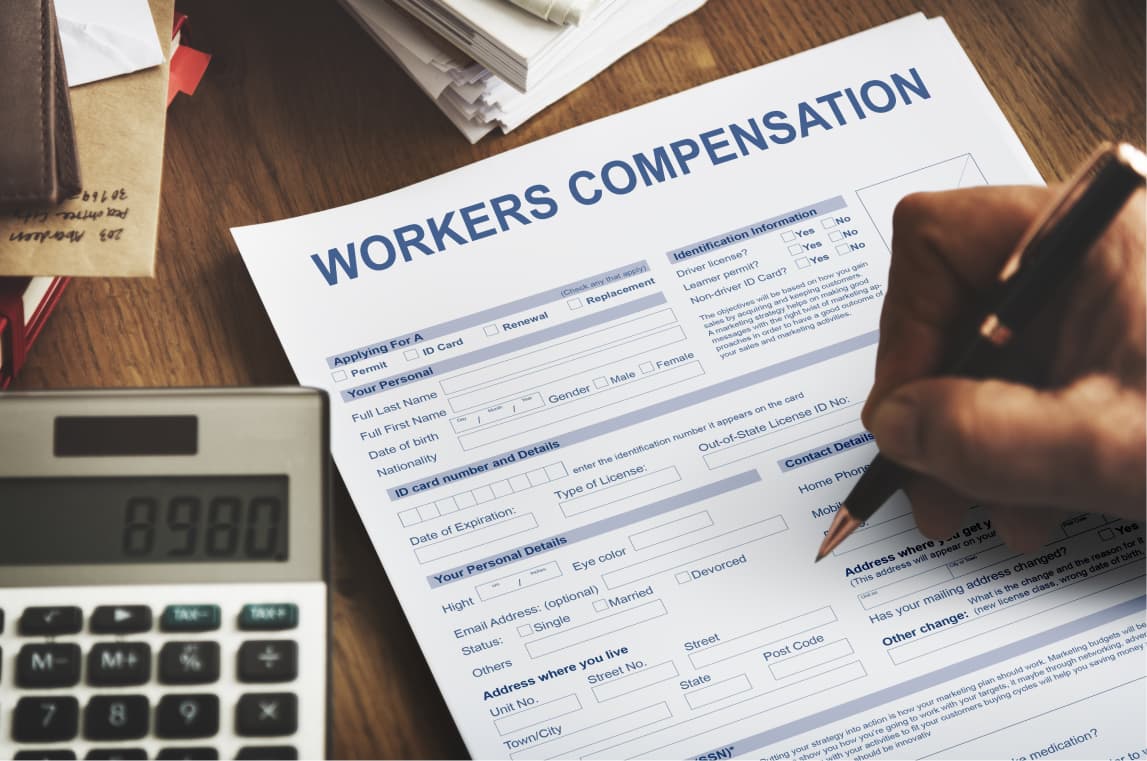Can I Get Fired For Filing A Workers' Comp Claim?
By Kenton Koszdin on May 17, 2018 | In Workers Compensation
Were you injured on the job and are now considering filing a workers’ comp claim? Many employees hesitate to do so, fearing job loss or retaliation. Can you actually be fired for taking this step?
The knowledgeable workers’ comp attorneys at Kenton Koszdin Law Office are here to help you better understand the particulars of this complex issue. This article will explore the legal aspects surrounding workers’ compensation and whether filing a claim could lead to termination.
Understanding Workers’ Compensation
Workers’ compensation is a type of insurance that provides financial assistance and medical coverage to injured workers. It exists to safeguard employees who suffer from work-related injuries or illnesses, ensuring that they can access crucial workers’ comp benefits without bearing the burden of medical expenses and lost wages.
In many jurisdictions, workers’ compensation is mandated by law, reinforcing the employer’s obligation to maintain a safe work environment. Knowing your rights regarding this type of insurance and its benefits not only protects you but also promotes a culture of safety and responsibility within the workplace.
Can I Get Fired While on Workers’ Comp?
This question is a significant one, especially for those dealing with a work-related injury. While it’s generally illegal to terminate employees for claiming workers’ compensation benefits, the situation is more nuanced than that.
California is an “at-will” employment state, meaning employers can dismiss employees at will, though not for retaliatory reasons like filing a workers’ comp claim. That said, companies can enforce policies that apply to all employees, potentially affecting those on workers’ comp.
As such, it’s important to understand that you aren’t completely immune from termination for other valid reasons.
What Can You Legally Be Fired for in California?
There are several legal justifications for termination of employment in California, which are primarily centered around the employee’s conduct and performance.
One of the most common reasons for dismissal is the violation of company policies. This could range from consistent tardiness to more serious offenses like harassment or theft.
Repeated mistakes that affect the company’s operations or profitability can also lead to termination. If your job performance suffered significantly prior to a workplace injury, this could also be a valid reason for dismissal.
Furthermore, if you’re unable to perform your job duties due to your injury, your employer may legally terminate your employment, provided they have exhausted all reasonable accommodations.
That said, California’s status as an at-will state means that employers can terminate workers for virtually any reason aside from those that may be construed as discriminatory, retaliatory, or otherwise unjust.
Alternative Employment Opportunities May Be Available
If you’re an injured worker who’s reached “maximum medical improvement” (the point at which your injury is unlikely to improve further, either with or without medical intervention) but can’t return to your previous role, you may wonder what your options are.
The good news is you aren’t necessarily stuck in limbo — many companies and laws support the transition to alternative or modified work positions for people in this situation.
Opting for a different job within the same organization or even switching career paths entirely can be a viable next step. Doing so can not only preserve your income but may also make you eligible for permanent disability benefits, depending on the nature and extent of your injury.
Can I Still Get Workers’ Comp Benefits If I’m Fired?
The answer to this question is generally affirmative. Even if you’ve been dismissed from your job, you should still be able to receive workers’ compensation benefits. That’s because these benefits are designed to cover the costs of injuries or illnesses that occurred during your employment period.
8 Indicators of Employer Backlash After Filing a Claim
It’s a good idea to be vigilant about potential signs of employer retaliation after filing a workers’ comp claim, as such behavior could lead to wrongful termination or other adverse impacts on your employment. Here’s what to look for.
1. Timing
Timing is a significant factor. If adverse actions take place shortly after you file your claim for medical care and lost wages, it may indicate retaliation.
2. Unjustified Actions
A lack of legitimate reasons for negative employment decisions, such as a demotion or reduction in hours, can be a red flag.
3. Unequal Treatment
Resentment may be a motive if you’re being treated differently than other employees who haven’t filed a claim, especially in matters of reasonable accommodation.
4. Disparaging Remarks About Your Claim
Negative or derogatory comments from supervisors or coworkers about your claim can be evidence of an unfriendly attitude toward you.
5. Previous Positive Performance Reviews
If you had strong evaluations before your claim but are suddenly subject to unfair criticisms or reviews, your claim may be the cause.
6. Absence of Formal Records
Lack of documentation concerning your performance or any supposed infractions could suggest that an employer isn’t making reasonable efforts to substantiate their actions.
7. Testimonies From Colleagues
Witness statements from coworkers can provide valuable evidence in supporting your case if you think retaliation has occurred.
8. Inconsistent Enforcement of Company Policies
If your employer enforces policies unevenly, especially concerning matters like reasonable accommodation or medical care, it could demonstrate a personal bias.
Actions to Consider If You Believe You’re a Victim of Unjust Termination or Retaliation
If you suspect you’ve been unlawfully terminated or retaliated against, taking immediate and appropriate steps to protect your rights is critical.
Step 1: Understand California Workers’ Compensation Laws
These laws are designed to protect employees who have become injured or ill as a result of their jobs. They provide benefits such as medical care, rehabilitation, and a portion of lost wages. It’s essential to familiarize yourself with these laws if you believe your termination is related to a workers’ compensation claim.
Step 2: Document Everything
Keep a detailed record of all interactions with your employer, including dates, times, locations, and other parties involved. This documentation will prove highly valuable if you need to prove your case later.
Additionally, make it a point to keep copies of all correspondence related to your termination or retaliation, including emails, letters, and text messages.
Step 3: Consult Experienced Workers’ Compensation Attorneys
These professionals focus on workers’ compensation law and can provide dependable advice and representation. They can help you understand your rights, evaluate your case, and guide you through the often-opaque legal process.
When choosing an attorney, look for someone with a strong track record in workers’ compensation cases who’s willing to fight for your rights.
Step 4: File a Complaint with the Appropriate Government Agency
In most states, this will be the Department of Labor or the equivalent state agency. Your complaint should detail your termination or retaliation and how it relates to your workers’ compensation claim. Make sure you include all relevant documentation with your complaint.
Step 5: Follow the Treatment Plan
If your termination or retaliation involves a work-related injury or illness, continue to follow the treatment plan prescribed by your primary treating physician. This is important for your health, and it also demonstrates that you’re taking your injury or illness seriously.
If your employer or their workers’ compensation insurance provider disputes your need for certain treatments, your primary treating physician can provide key evidence in your favor.
Step 6: Be Prepared for a Potentially Lengthy Process
Resolving workers’ compensation claims can take time, especially if they involve allegations of unlawful termination or retaliation. Remember, you have the right to be treated fairly, and there are laws in place to protect you.
By understanding these laws and taking proactive measures to protect your rights as an employee, you can better prepare yourself to deal with the fallout of being fired after a workers’ comp settlement.
Turn to a Trusted Los Angeles Workers’ Compensation Attorney
Partnering with a capable workers’ comp lawyer can make all the difference for your future. The experienced attorneys at Kenton Koszdin Law Office can offer the guidance and support you need to confidently file a claim, safeguard your employment, and secure the benefits you’re entitled to.
Your well-being is too important to leave to chance. Schedule your no-cost consultation today to have a skilled workers’ comp lawyer handle your case.






